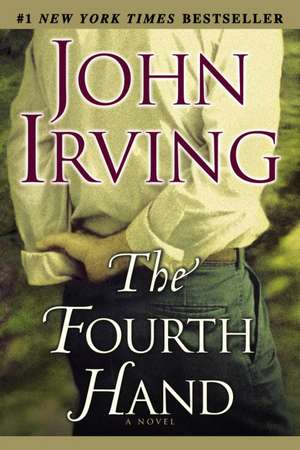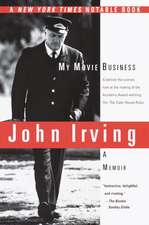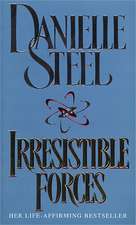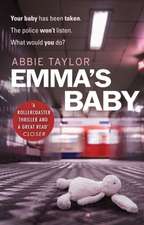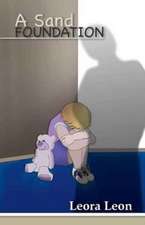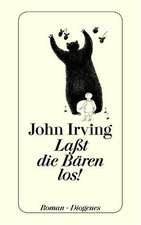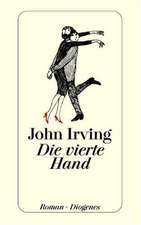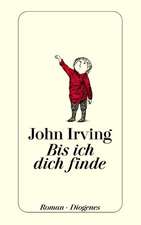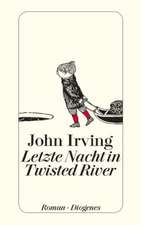The Fourth Hand
Autor John Irvingen Limba Engleză Paperback – 30 apr 2002
| Toate formatele și edițiile | Preț | Express |
|---|---|---|
| Paperback (2) | 69.01 lei 23-34 zile | +24.60 lei 6-10 zile |
| Transworld Publishers Ltd – iun 2002 | 69.01 lei 23-34 zile | +24.60 lei 6-10 zile |
| BALLANTINE BOOKS – 30 apr 2002 | 103.66 lei 3-5 săpt. |
Preț: 103.66 lei
Nou
Puncte Express: 155
Preț estimativ în valută:
19.84€ • 21.54$ • 16.66£
19.84€ • 21.54$ • 16.66£
Carte disponibilă
Livrare economică 02-16 aprilie
Preluare comenzi: 021 569.72.76
Specificații
ISBN-13: 9780345449344
ISBN-10: 0345449347
Pagini: 352
Dimensiuni: 139 x 208 x 19 mm
Greutate: 0.28 kg
Ediția:Ballantine Bks.
Editura: BALLANTINE BOOKS
ISBN-10: 0345449347
Pagini: 352
Dimensiuni: 139 x 208 x 19 mm
Greutate: 0.28 kg
Ediția:Ballantine Bks.
Editura: BALLANTINE BOOKS
Notă biografică
John Irving published his first novel at the age of twenty-six. He has received awards from the Rockefeller Foundation, the National Endowment for the Arts, and the Guggenheim Foundation; he has won an O. Henry Award, a National Book Award, and an Academy Award. Mr. Irving lives with his family in Toronto and Vermont.
Extras
The Lion Guy
Imagine a young man on his way to a less-than-thirty-second event—the loss of his left hand, long before he reached middle age.
As a schoolboy, he was a promising student, a fair-minded and likable kid, without being terribly original. Those classmates who could remember the future hand recipient from his elementary-school days would never have described him as daring. Later, in high school, his success with girls notwithstanding, he was rarely a bold boy, certainly not a reckless one. While he was irrefutably good-looking, what his former girlfriends would recall as most appealing about him was that he deferred to them.
Throughout college, no one would have predicted that fame was his destiny. “He was so unchallenging,” an ex-girlfriend said.
Another young woman, who’d known him briefly in graduate school, agreed. “He didn’t have the confidence of someone who was going to do anything special” was how she put it.
He wore a perpetual but dismaying smile—the look of someone who knows he’s met you before but can’t recall the exact occasion. He might have been in the act of guessing whether the previous meeting was at a funeral or in a brothel, which would explain why, in his smile, there was an unsettling combination of grief and embarrassment.
He’d had an affair with his thesis adviser; she was either a reflection of or a reason for his lack of direction as a graduate student. Later—she was a divorcée with a nearly grown daughter—she would assert: “You could never rely on someone that good-looking. He was also a classic underachiever—he wasn’t as hopeless as you first thought. You wanted to help him. You wanted to change him. You definitely wanted to have sex with him.”
In her eyes, there would suddenly be a kind of light that hadn’t been there; it arrived and departed like a change of color at the day’s end, as if there were no distance too great for this light to travel. In noting “his vulnerability to scorn,” she emphasized “how touching that was.”
But what about his decision to undergo hand-transplant surgery? Wouldn’t only an adventurer or an idealist run the risk necessary to acquire a new hand?
No one who knew him would ever say he was an adventurer or an idealist, but surely he’d been idealistic once. When he was a boy, he must have had dreams; even if his goals were private, unexpressed, he’d had goals.
His thesis adviser, who was comfortable in the role of expert, attached some significance to the loss of his parents when he was still a college student. But his parents had amply provided for him; in spite of their deaths, he was financially secure. He could have stayed in college until he had tenure—he could have gone to graduate school for the rest of his life. Yet, although he’d always been a successful student, he never struck any of his teachers as exceptionally motivated. He was not an initiator—he just took what was offered.
He had all the earmarks of someone who would come to terms with the loss of a hand by making the best of his limitations. Everyone who knew him had him pegged as a guy who would eventually be content one-handed.
Besides, he was a television journalist. For what he did, wasn’t one hand enough?
But he believed a new hand was what he wanted, and he’d alertly understood everything that could go medically wrong with the transplant. What he failed to realize explained why he had never before been much of an experimenter; he lacked the imagination to entertain the disquieting idea that the new hand would not be entirely his. After all, it had been someone else’s hand to begin with.
How fitting that he was a television journalist. Most television journalists are pretty smart—in the sense of being mentally quick, of having an instinct to cut to the chase. There’s no procrastination on TV. A guy who decides to have hand-transplant surgery doesn’t dither around, does he?
Anyway, his name was Patrick Wallingford and he would, without hesitation, have traded his fame for a new left hand. At the time of the accident, Patrick was moving up in the world of television journalism. He’d worked for two of the three major networks, where he repeatedly complained about the evil influence of ratings on the news. How many times had it happened that some CEO more familiar with the men’s room than the control room made a “marketing decision” that compromised a story? (In Wallingford’s opinion, the news executives had completely caved in to the marketing mavens.)
To put it plainly, Patrick believed that the networks’ financial expectations of their news divisions were killing the news. Why should news shows be expected to make as much money as what the networks called entertainment? Why should there be any pressure on a news division even to make a profit? News wasn’t what happened in Hollywood; news wasn’t the World Series or the Super Bowl. News (by which Wallingford meant real news—that is, in-depth coverage) shouldn’t have to compete for ratings with comedies or so-called dramas.
Patrick Wallingford was still working for one of the major networks when the Berlin Wall fell in November 1989. Patrick was thrilled to be in Germany on such a historic occasion, but the pieces he filed from Berlin were continually edited down—sometimes to half the length he felt they deserved. A CEO in the New York newsroom said to Wallingford: “Any news in the foreign-policy category is worth shit.”
When this same network’s overseas bureaus began closing, Patrick made the move that other TV journalists have made. He went to work for an all-news network; it was not a very good network, but at least it was a twenty-four-hour international news channel.
Was Wallingford naïve enough to think that an all-news network wouldn’t keep an eye on its ratings? In fact, the international channel was overfond of minute-by-minute ratings that could pinpoint when the attention of the television audience waxed or waned.
Yet there was cautious consensus among Wallingford’s colleagues in the media that he seemed destined to be an anchor. He was inarguably handsome—the sharp features of his face were perfect for television—and he’d paid his dues as a field reporter. Funnily enough, the enmity of Wallingford’s wife was chief among his costs.
She was his ex-wife now. He blamed the travel, but his then-wife’s assertion was that other women were the problem. In truth, Patrick was drawn to first-time sexual encounters, and he would remain drawn to them, whether he traveled or not.
Just prior to Patrick’s accident, there’d been a paternity suit against him. Although the case was dismissed—a DNA test was negative—the mere allegation of his paternity raised the rancor of Wallingford’s wife. Beyond her then-husband’s flagrant infidelity, she had an additional reason to be upset. Although she’d long wanted to have children, Patrick had steadfastly refused. (Again he blamed the travel.)
Now Wallingford’s ex-wife—her name was Marilyn—was wont to say that she wished her ex-husband had lost more than his left hand. She’d quickly remarried, had got pregnant, had had a child; then she’d divorced again. Marilyn would also say that the pain of childbirth—notwithstanding how long she’d looked forward to having a child—was greater than the pain Patrick had experienced in losing his left hand.
Patrick Wallingford was not an angry man; a usually even-tempered disposition was as much his trademark as his drop-dead good looks. Yet the pain of losing his left hand was Wallingford’s most fiercely guarded possession. It infuriated him that his ex-wife trivialized his pain by declaring it less than hers in “merely,” as he was wont to say, giving birth.
Nor was Wallingford always even-tempered in response to his ex-wife’s proclamation that he was an addicted womanizer. In Patrick’s opinion, he had never womanized. This meant that Wallingford didn’t seduce women; he simply allowed himself to be seduced. He never called them—they called him. He was the boy equivalent of the girl who couldn’t say no—emphasis, his ex-wife would say, on boy. (Patrick had been in his late twenties, going on thirty, when his then-wife divorced him, but, according to Marilyn, he was permanently a boy.)
The anchor chair, for which he’d seemed destined, still eluded him. And after the accident, Wallingford’s prospects dimmed. Some CEO cited “the squeamish factor.” Who wants to watch their morning or their evening news telecast by some loser-victim type who’s had his hand chomped off by a hungry lion? It may have been a less-than-thirty-second event—the entire story ran only three minutes—but no one with a television set had missed it. For a couple of weeks, it was on the tube repeatedly, worldwide.
Wallingford was in India. His all-news network, which, because of its penchant for the catastrophic, was often referred to by the snobs in the media elite as “Disaster International,” or the “calamity channel,” had sent him to the site of an Indian circus in Gujarat. (No sensible news network would have sent a field reporter from New York to a circus in India.)
The Great Ganesh Circus was performing in Junagadh, and one of their trapeze artists, a young woman, had fallen. She was renowned for “flying”—as the work of such aerialists is called—without a safety net, and while she was not killed in the fall, which was from a height of eighty feet, her husband/trainer had been killed when he attempted to catch her. Although her plummeting body killed him, he managed to break her fall.
The Indian government instantly declared no more flying without a net, and the Great Ganesh, among other small circuses in India, protested the ruling. For years, a certain government minister—an overzealous animal-rights activist—had been trying to ban the use of animals in Indian circuses, and for this reason the circuses were sensitive to government interference of any kind. Besides—as the excitable ringmaster of the Great Ganesh Circus told Patrick Wallingford, on-camera—the audiences packed the tent every afternoon and night because the trapeze artists didn’t use a net.
What Wallingford had noticed was that the nets themselves were in shocking disrepair. From where Patrick stood on the dry, hard-packed earth—on the “floor” of the tent, looking up—he saw that the pattern of holes was ragged and torn. The damaged net resembled a colossal spiderweb that had been wrecked by a panicked bird. It was doubtful that the net could support the weight of a falling child, much less that of an adult.
Many of the performers were children, and these mostly girls. Their parents had sold them to the circus so they could have a better (meaning a safer) life. Yet the element of risk in the Great Ganesh was huge. The excitable ringmaster had told the truth: the audiences packed the tent every afternoon and night to see accidents happen. And often the victims of these accidents were children. As performers, they were talented amateurs—good little athletes—but they were spottily trained.
Why most of the children were girls was a subject any good journalist would have been interested in, and Wallingford—whether or not one believed his ex-wife’s assessment of his character—was a good journalist. His intelligence lay chiefly in his powers of observation, and television had taught him the importance of quickly jumping ahead to what might go wrong.
The jumping-ahead part was both what was brilliant about and what was wrong with television. TV was driven by crises, not causes. What chiefly disappointed Patrick about his field assignments for the all-news network was how common it was to miss or ignore a more important story. For example, the majority of the child performers in an Indian circus were girls because their parents had not wanted them to become prostitutes; at worst, the boys not sold to a circus would become beggars. (Or they would starve.)
But that wasn’t the story Patrick Wallingford had been sent to India to report. A trapeze artist, a grown woman hurtling downward from eighty feet, had landed in her husband’s arms and killed him. The Indian government had intervened—the result being that every circus in India was protesting the ruling that their aerialists now had to use a net. Even the recently widowed trapeze artist, the woman who’d fallen, joined in the protest.
Wallingford had interviewed her in the hospital, where she was recovering from a broken hip and some nonspecific damage to her spleen; she told him that flying without a safety net was what made the flying special. Certainly she would mourn her late husband, but her husband had been an aerialist, too—he’d also fallen and had survived his fall. Yet possibly, his widow implied, he’d not really escaped that first mistake; her falling on him had conceivably signified the true conclusion of the earlier, unfinished episode.
Now that was interesting, Wallingford thought, but his news editor, who was cordially despised by everyone, was disappointed in the interview. And all the people in the newsroom in New York thought that the widowed trapeze artist had seemed “too calm”; they preferred their disaster victims to be hysterical.
Furthermore, the recovering aerialist had said her late husband was now “in the arms of the goddess he believed in”—an enticing phrase. What she meant was that her husband had believed in Durga, the Goddess of Destruction. Most of the trapeze artists believed in Durga—the goddess is generally depicted as having ten arms. The widow explained: “Durga’s arms are meant to catch and hold you, if you ever fall.”
That was interesting to Wallingford, too, but not to the people in the newsroom in New York; they said they were “sick of religion.” Patrick’s news editor informed him that they had run too many religious stories lately. What a dick, Wallingford thought. It didn’t help that the news editor’s name was Dick.
He’d sent Patrick back to the Great Ganesh Circus to acquire “additional local color.” Dick had further reasoned that the ringmaster was more outspoken than the trapeze artist.
Patrick had protested. “Something about the child performers would make a better story,” he said. But apparently they were also “sick of children” in New York.
“Just get more of the ringmaster,” Dick advised Wallingford.
In tandem with the ringmaster’s excitement, the lions in their cage—the lions were the background for the last interview—grew restless and loud. In television terms, the piece that Wallingford was filing from India was the intended “kicker,” the show-ender. The lions would make the story an even better kicker if they roared loudly enough.
It was meat day, and the Muslims who brought the meat had been delayed. The television truck and the camera and sound equipment—as well as the cameraman and the female sound technician—had intimidated them. The Muslim meat wallahs had been frozen in their tracks by so much unfamiliar technology. But primarily it was the sight of the female sound technician that had halted them.
A tall blonde in tight blue jeans, she wore headphones and a tool belt with what must have struck the meat wallahs as an assortment of male-looking accessories: either pliers or a pair of wire cutters, a bunch of clamps and cables, and what might have been a battery-tester. She was also wearing a T-shirt without a bra.
Wallingford knew that she was German because he’d slept with her the night before. She’d told him about the first trip she took to Goa—she was on vacation, traveling with another German girl, and they’d both decided that they never wanted to live anywhere but India.
The other girl got sick and went home, but Monika had found a way to stay in India. That was her name—“Monika with a k,” she’d told him. “Sound technicians can live anywhere,” she had declared. “Anywhere there’s sound.”
“You might like to try living in New York,” Patrick had suggested. “There’s a lot of sound there, and you can drink the water.” Unthinkingly, he’d added: “German girls are very popular in New York right now.”
“Why ‘right now’?” she’d asked.
This was symptomatic of the trouble Patrick Wallingford got into with women; that he said things for no reason was not unlike the way he acquiesced to the advances women made to him. There’d been no reason for saying “German girls are very popular in New York right now,” except to keep talking. It was his feeble acquiescence to women, his tacit assent to their advances, that had infuriated Wallingford’s wife, who’d just happened to call him in his hotel room when he was fucking Monika with a k.
There was a ten-and-a-half-hour time difference between Junagadh and New York, but Patrick pretended he didn’t know whether India was ten and a half hours ahead or behind. All he ever said when his wife called was, “What time is it there, honey?”
“You’re fucking someone, aren’t you?” his wife asked.
“No, Marilyn, I am not,” he lied. Under him, the German girl held still. Wallingford tried to hold himself still, too, but holding still in the act of lovemaking is arguably more difficult for a man.
“I just thought you’d like to know the results of your pater- nity test,” Marilyn said. This helped Patrick to hold still. “Well, it’s negative—you’re not the father. I guess you dodged that bullet, didn’t you?”
All Wallingford could think of saying was: “That was improper—that they gave you the results of my blood test. It was my blood test.”
Under him, Monika with a k went rigid; where she’d been warm, she felt cool. “What blood test?” she whispered in Patrick’s ear.
But Wallingford was wearing a condom—the German sound technician was protected from most things, if not everything. (Patrick always wore a condom, even with his wife.)
“Who is she this time?” Marilyn hollered into the phone. “Who are you fucking at this very minute?”
Two things were clear to Wallingford: that his marriage could not be saved and that he didn’t want to save it. As always, with women, Patrick acquiesced. “Who is she?” his wife screamed again, but Wallingford wouldn’t answer her. Instead he held the mouthpiece of the phone to the German girl’s lips.
Patrick needed to move a wisp of the girl’s blond hair away from her ear before he whispered into it. “Just tell her your name.”
“Monika . . . with a k,” the German girl said into the phone.
Wallingford hung up, doubting that Marilyn would call back— she didn’t. But after that, he had a lot to say to Monika with a k; they hadn’t had the best night’s sleep.
In the morning, at the Great Ganesh, the way everything had started out seemed a little anticlimactic. The ringmaster’s repeated complaints about the Indian government were not nearly so sympathetic as the fallen trapeze artist’s description of the ten-armed goddess in whom all the aerialists believed.
Were they deaf and blind in the newsroom in New York? That widow in her hospital bed had been great stuff! And Wallingford still wanted to tell the story of the context of the trapeze artist falling without a safety net. The child performers were the context, those children who’d been sold to the circus.
What if the trapeze artist herself had been sold to the circus as a child? What if her late husband had been rescued from a no-future childhood, only to meet his fate—his wife falling into his arms from eighty feet—under the big top? That would have been interesting.
Instead, Patrick was interviewing the repetitive ringmaster in front of the lions’ cage—this commonplace circus image being what New York had meant by “additional local color.”
No wonder the interview seemed anticlimactic compared to Wallingford’s night with the German sound technician. Monika with a k, in her T-shirt without a bra, was making a noticeable impression on the Muslim meat wallahs, who had taken offense at the German girl’s clothes, or lack thereof. In their fear, their curiosity, their moral outrage, they would have given a better and truer depiction of additional local color than the tiresome ringmaster.
Near the lions’ cage, but appearing either too afraid or too dumbfounded or too offended to come any closer, the Muslims stood as if in shock. Their wooden carts were piled high with the sweet-smelling meat, which was a source of infinite disgust to the largely vegetarian (Hindu) community of the circus. Naturally the lions could smell the meat, too, and were vexed at the delay.
When the lions began roaring, the cameraman zoomed in on them, and Patrick Wallingford—recognizing a moment of genuine spontaneity—extended his microphone to within reach of their cage. He got a better kicker than he’d bargained for.
A paw flicked out; a claw caught Wallingford’s left wrist. He dropped the microphone. In less than two seconds, his left arm, up to his elbow, had been snatched inside the cage. His left shoulder was slammed against the bars; his left hand, including an inch or more above his wrist, was in a lion’s mouth.
In the ensuing hullabaloo, two other lions competed with the first for Patrick’s wrist and hand. The lion tamer, who was never far from his lions, intervened; he struck them in their faces with a shovel. Wallingford retained consciousness long enough to recognize the shovel—it was used principally as a lion pooper-scooper. (He’d seen it in action only minutes before.)
Patrick passed out somewhere in the vicinity of the meat carts, not far from where Monika with a k had sympathetically fainted. But the German girl had fainted in one of the meat carts, to the considerable consternation of the meat wallahs; and when she came to, she discovered that her tool belt had been stolen while she’d lain unconscious in the wet meat.
The German sound technician further claimed that, while she was passed out, someone had fondled her breasts—she had fingerprint bruises on both breasts to prove it. But there were no handprints among the bloodstains on her T-shirt. (The bloodstains were from the meat.) It was more likely that the bruises on her breasts were the result of her nightlong lovemaking with Patrick Wallingford. Whoever had been bold enough to swipe her tool belt had probably lacked the courage to touch her breasts. No one had touched her headphones.
Wallingford, in turn, had been dragged away from the lions’ cage without realizing that his left hand and wrist were gone; yet he was aware that the lions were still fighting over something. At the same moment that the sweet smell of the mutton reached him, he realized that the Muslims were transfixed by his dangling left arm. (The force of the lion’s pull had separated his shoulder.) And when he looked, he saw that his watch was missing. He was not that sorry to have lost it—it had been a gift from his wife. Of course there was nothing to keep the watch from slipping off; his left hand and the big joint of his left wrist were missing, too.
Not finding a familiar face among the Muslim meat wallahs, Wallingford had doubtless hoped to locate Monika with a k, stricken but no less adoring. Unfortunately, the German girl was flat on her back in one of the mutton carts, her face turned away.
Patrick took some bitter consolation from seeing, if not the face, at least the profile of his unfazed cameraman, who had never wa- vered from his foremost responsibility. The determined professional had moved in close to the lions’ cage, where the lions were caught in the act of not very agreeably sharing what little remained of Patrick’s wrist and hand. Talk about a good kicker!
For the next week or more, Wallingford watched and rewatched the footage of his hand being taken from him and consumed. It puzzled him that the attack reminded him of something mystifying his thesis adviser had said to him when she was breaking off their affair: “It’s been flattering, for a while, to be with a man who can so thoroughly lose himself in a woman. On the other hand, there’s so little you in you that I suspect you could lose yourself in any woman.” Just what on earth she could have meant by that, or why the eating of his hand had caused him to recall the complaining woman’s remarks, he didn’t know.
But what chiefly distressed Wallingford, in the less-than-thirty seconds it took a lion to dispose of his wrist and hand, was that the arresting images of himself were not pictures of Patrick Wallingford as he had ever looked before. He’d had no previous experience with abject terror. The worst of the pain came later.
In India, for reasons that were never clear, the government minister who was an activist for animal rights used the hand-eating episode to further the crusade against the abuse of circus animals. How eating his hand had abused the lions, Wallingford never knew.
What concerned him was that the world had seen him scream and writhe in pain and fear; he’d wet his pants on-camera, not that a single television viewer had truly seen him do that. (He’d been wearing dark pants.) Nevertheless, he was an object of pity for millions, before whom he’d been publicly disfigured.
Even five years later, whenever Wallingford remembered or dreamed about the episode, the effect of the painkiller was foremost in his mind. The drug was not available in the United States—at least that was what the Indian doctor had told him. Wallingford had been trying to find out what it was ever since.
Whatever its name, the drug had elevated Patrick’s consciousness of his pain while at the same time leaving him utterly detached from the pain itself; it had made him feel like an indifferent observer of someone else. And in elevating his consciousness, the drug did far more than relieve his pain.
The doctor who’d prescribed the medication, which came in the form of a cobalt-blue capsule—“Take only one, Mr. Wallingford, every twelve hours”—was a Parsi who treated him after the lion attack in Junagadh. “It’s for the best dream you’ll ever have, but it’s also for pain,” Dr. Chothia added. “Don’t ever take two. Americans are always taking pills in twos. Not this one.”
“What’s it called? I presume it has a name.” Wallingford was suspicious of it.
“After you take one, you won’t remember what it’s called,” Dr. Chothia told him cheerfully. “And you won’t hear its name in America—your FDA guys will never approve it!”
“Why?” Wallingford asked. He still hadn’t taken the first capsule.
“Go on—take it! You’ll see,” the Parsi said. “There’s nothing better.”
Despite his pain, Patrick didn’t want to go off on some drug-induced trip.
“Before I take it, I want to know why the FDA will never approve it,” he said.
“Because it’s too much fun!” Dr. Chothia cried. “Your FDA guys don’t like fun. Now take it, before I spoil your fun by giving you some other medication!”
The pill had put Patrick to sleep—or was it sleep? Surely his awareness was too heightened for sleep. But how could he have known he was in a state of prescience? How can anyone identify a dream of the future?
Wallingford was floating above a small, dark lake. There had to have been some kind of plane, or Wallingford couldn’t have been there, but in the dream he never saw or heard the plane. He was simply descending, drawing closer to the little lake, which was surrounded by dark-green trees, fir trees and pines. Lots of white pines.
There were hardly any rock outcroppings. It didn’t look like Maine, where Wallingford had gone to summer camp as a child. It didn’t look like Ontario, either; Patrick’s parents had once rented a cottage in Georgian Bay, Lake Huron. But the lake in the dream was no place he’d ever been.
Here and there a dock protruded into the water, and sometimes a small boat was tied to the dock. Wallingford saw a boathouse, too, but it was the feeling of the dock against his bare back, the roughness of its planks through a towel, that was the first physical sensation in the dream. As with the plane, he couldn’t see the towel; he could only feel something between his skin and the dock.
The sun had just gone down. Wallingford had seen no sunset, but he could tell that the heat of the sun was still warming the dock. Except for Patrick’s near-perfect view of the dark lake and the darker trees, the dream was all feeling.
He felt the water, too, but never that he was in it. Instead he had the feeling that he’d just come out of the water. His body was drying off on the dock, yet he still felt chilled.
Then a woman’s voice—like no other woman’s voice Wallingford had ever heard, like the sexiest voice in the world—said: “My bathing suit feels so cold. I’m going to take it off. Don’t you want to take yours off, too?”
From that point on, in the dream, Patrick was aware of his erection, and he heard a voice that sounded a lot like his own, saying “yes”—he wanted to take off his wet bathing suit, too.
There was additionally the soft sound of the water lapping against the dock, and dripping from the wet bathing suits between the planks, returning to the lake.
He and the woman were naked now. Her skin was at first wet and cold, and then warm against his skin; her breath was hot against his throat, and he could smell her wet hair. Moreover, the smell of sunlight had been absorbed by her taut shoulders, and there was something that tasted like the lake on Patrick’s tongue, which traced the contours of the woman’s ear.
Of course Wallingford was inside her, too—having never-ending sex on the dock at the lovely, dark lake. And when he woke up, eight hours later, he discovered that he’d had a wet dream; yet he still had the hugest hard-on he’d ever had.
The pain from his missing hand was gone. The pain would come back about ten hours after he’d taken the first of the cobalt-blue capsules. The two hours Patrick had to wait before he could take a second capsule were an eternity to him; in that miserable interim, all he could talk to Dr. Chothia about was the pill.
“What’s in it?” Wallingford asked the mirthful Parsi.
“It was developed as a cure for impotence,” Dr. Chothia told him, “but it didn’t work.”
“It works, all right,” Wallingford argued.
“Well . . . apparently not for impotence,” the Parsi repeated. “For pain, yes—but that was an accidental discovery. Please remember what I said, Mr. Wallingford. Don’t ever take two.”
“I’d like to take three or four,” Patrick replied, but the Parsi was not his usual mirthful self on this subject.
“No, you wouldn’t like to—believe me,” Dr. Chothia warned him.
Swallowing only one capsule at a time, and at the proper twelve-hour intervals, Wallingford had ingested two more of the cobalt-blue painkillers while he was still in India, and Dr. Chothia had given him one more to take on the plane. Patrick had pointed out to the Parsi that the plane would be more than twelve hours in getting back to New York, but the doctor would give him nothing stronger than Tylenol with codeine for when the last of the wet-dream pills wore off.
Wallingford would have exactly the same dream four times—the last time on the flight from Frankfurt to New York. He’d taken the Tylenol with codeine on the first part of the long trip, from Bombay to Frankfurt, because (despite the pain) he’d wanted to save the best for last.
The flight attendant winked at Wallingford when she woke him up from his blue-capsule dream, just before the plane landed in New York. “If that was pain you were in, I’d like to be in pain with you,” she whispered. “Nobody ever said ‘yes’ that many times to me!”
Although she gave Patrick her phone number, he didn’t call her. Wallingford wouldn’t have sex as good as the sex in the blue-capsule dream for five years. It would take Patrick longer than that to understand that the cobalt-blue capsule Dr. Chothia had given him was more than a painkiller and a sex pill—it was, more important, a prescience pill.
Yet the pill’s primary benefit was that it prevented him from dreaming more than once a month about the look in the lion’s eyes when the beast had taken hold of his hand. The lion’s huge, wrinkled forehead; his tawny, arched eyebrows; the flies buzzing in his mane; the great cat’s rectangular, blood-spattered snout, which was scarred with claw marks—these details were not as ingrained in Wallingford’s memory, in the stuff of his dreams, as the lion’s yellow-brown eyes, in which he’d recognized a vacant kind of sadness. He would never forget those eyes—their dispassionate scrutiny of Patrick’s face, their scholarly detachment.
Regardless of what Wallingford remembered or dreamed about, what viewers of the aptly nicknamed Disaster International network would remember and dream about was the footage of the hand-eating episode itself—every heart-stopping second of it.
The calamity channel, which was routinely ridiculed for its proclivity for bizarre deaths and stupid accidents, had created just such an accident while reporting just such a death, thereby enhancing its reputation in an unprecedented way. And this time the disaster had happened to a journalist! (Don’t think that wasn’t part of the popularity of the less-than-thirty-second amputation.)
In general, adults identified with the hand, if not with the unfortunate reporter. Children tended to sympathize with the lion. Of course there were warnings concerning the children. After all, entire kindergarten classes had come unglued. Second-graders—at last learning to read with comprehension and fluency—regressed to a preliterate, strictly visual state of mind.
Parents with children in elementary school at the time will always remember the messages sent home to them, messages such as: “We strongly recommend that you do not let your children watch TV until that business with the lion guy is no longer being shown.”
Patrick’s former thesis adviser was traveling with her only daughter when her ex-lover’s hand-consuming accident was first televised.
The daughter had managed to get pregnant in her senior year in boarding school; while not exactly an original feat, this was nonetheless unexpected at an all-girls’ school. The daughter’s subsequent abortion had traumatized her and resulted in a leave of absence from her studies. The distraught girl, whose charmless boyfriend had dumped her before she knew she was carrying his child, would need to repeat her senior year.
Her mother was also having a hard time. She’d still been in her thirties when she’d seduced Wallingford, who was more than ten years her junior but the best-looking boy among her graduate students. Now in her early forties, she was going through her second divorce, the arbitration of which had been made more difficult by the unwelcome revelation that she’d recently slept with another of her students—her first-ever undergraduate.
He was a beautiful boy—sadly the only boy in her ill-advised course on the metaphysical poets, which was ill advised because she should have known that such “a race of writers,” as Samuel Johnson had called them when he first nicknamed them the “metaphysical poets,” would mostly be of interest to young women.
She was ill advised, too, in admitting the boy to this all-girl class; he was underprepared for it. But he’d come to her office and recited Andrew Marvell’s “To His Coy Mistress,” flubbing only the couplet “My vegetable love should grow / Vaster than empires, and more slow.”
He’d said “groan” instead of “grow,” and she could almost hear him groaning as he delivered the next lines.
An hundred years should go to praise
Thine eyes, and on thy forehead gaze;
Two hundred to adore each breast;
But thirty thousand to the rest
Oh, my, she’d thought, knowing they were her breasts, and the rest, that he was thinking of. So she’d let him in.
When the girls in the class flirted with him, she felt the need to protect him. At first she told herself she just wanted to mother him. When she dumped him—no less ceremoniously than her pregnant daughter had been dumped by her unnamed boyfriend—the boy dropped her course and called his mother.
The boy’s mother, who was on the board of trustees at another university, wrote the dean of faculty: “Isn’t sleeping with one’s students in the ‘moral turpitude’ department?” Her question had resulted in Patrick’s onetime thesis adviser and lover taking a semester’s leave of absence of her own.
The unplanned sabbatical, her second divorce, her daughter’s not dissimilar disgrace . . . well, mercy, what was Wallingford’s old thesis adviser to do?
Her soon-to-be second ex-husband had reluctantly agreed not to cancel her credit cards for one more month. He would deeply regret this. She spontaneously took her out-of-school daughter to Paris, where they moved into a suite at the Hôtel Le Bristol; it was far too expensive for her, but she’d received a postcard of it once and had always wanted to go there. The postcard had been from her first ex-husband—he’d stayed there with his second wife and had sent her the card just to rub it in.
Le Bristol was on the rue du Faubourg Saint Honoré, surrounded by elegant shopping of the kind not even an adventuress could afford. Once they were there, she and her daughter didn’t dare go anywhere or do anything. The extravagance of the hotel itself was more than they could handle. They felt underdressed in the lobby and in the bar, where they sat mesmerized by the people who were clearly more at ease about simply being in Le Bristol than they were. Yet they wouldn’t admit it had been a bad idea to come—at least not their first night.
There was quite a nice, modestly priced bistro very near them, on one of the smaller streets, but it was a rainy, dark evening and they wanted to go to bed early—they were yielding to jet lag. They planned on an early dinner at the hotel and would let the real Paris begin for them the next day, but the hotel restaurant was very popular. A table wouldn’t be available for them until after nine o’clock, when they hoped to be fast asleep.
They’d come all this way to make recompense for how they’d both been unjustly injured, or so they believed; in truth, they were victims of the dissatisfactions of the flesh, in which their own myriad discontents had played a principal part. Unearned or deserved, Le Bristol was to be their reward. Now they were forced to retreat to their suite, relegated to room service.
There was nothing inelegant about room service at Le Bristol—it was simply not a night in Paris of the kind they had imagined. Both mother and daughter, uncharacteristically, tried to make the best of it.
“I never dreamed I’d spend my first night in Paris in a hotel room with my mother!” the daughter exclaimed; she tried to laugh about it.
“At least I won’t get you pregnant,” her mother remarked. They both tried to laugh about that, too.
Wallingford’s old thesis adviser began the litany of the disappointing men in her life. The daughter had heard some of the list before, but she was developing a list of her own, albeit thus far vastly shorter than her mother’s. They drank two half-bottles of wine from the mini-bar before the red Bordeaux they’d ordered with their dinner was delivered, and they drank that, too. Then they called room service and asked for a second bottle.
The wine loosened their tongues—maybe more than was either appropriate or seemly in a mother-daughter conversation. That her wayward daughter could easily have got herself pregnant with any number of careless boys before she encountered the lout who’d done the job was a bitter pill for any mother to swallow—even in Paris. That Patrick Wallingford’s former thesis adviser was an inveterate sexual aggressor grew evident, even to her daughter; that her mother’s sexual taste had led her to dally with ever-younger men, which eventually included a teenager, was possibly more than any daughter cared to know.
At a welcome lull in her mother’s nonstop confessions—the middle-aged admirer of the metaphysical poets was signing for the second bottle of Bordeaux while brazenly flirting with the room-service waiter—the daughter sought some relief from this unwanted intimacy by turning on the television. As befitted a recently and stylishly renovated hotel, Le Bristol offered a multitude of satellite-TV channels—in English and other languages, as well as in French—and, as luck would have it, the inebriated mother had no sooner closed the door behind the room-service waiter than she turned to face the room, her daughter, and the TV, where she saw her ex-lover lose his left hand to a lion. Just like that!
Of course she screamed, which made her daughter scream. The second bottle of Bordeaux would have slipped out of the mother’s grasp, had she not gripped the neck of the bottle tightly. (She might have been imagining that the bottle was one of her own hands, disappearing down a lion’s throat.)
The hand-eating episode was over before the mother could reiterate the tortured tale of her relationship with the now-maimed television journalist. It would be an hour until the international news channel aired the incident again, although every fifteen minutes there were what the network called “bumpers,” telling of the upcoming item—each promo in a ten- or fifteen-second installment. The lions fighting over some remaining and indistinguishable tidbit in their cage; the handless arm dangling from Patrick’s separated shoulder; the stunned expression on Wallingford’s face shortly before he fainted; a hasty view of a braless, headphone-wearing blond woman, who appeared to be sleeping in what looked like meat.
Mother and daughter sat up a second hour to watch the whole episode again. This time the mother remarked of the braless blonde, “I’ll bet he was fucking her.”
They went on like that, through the second bottle of Bordeaux. Their third watching of the complete event prompted cries of lascivious glee—as if Wallingford’s punishment, as they thought of it, was what should have happened to every man they had ever known.
“Only it shouldn’t have been his hand,” the mother said.
“Yeah, right,” the daughter replied.
But after this third viewing of the grisly event, only a sullen silence greeted the final swallowing of the body parts, and the mother found herself looking away from Patrick’s face as he was about to swoon.
“The poor bastard,” the daughter said under her breath. “I’m going to bed.”
“I think I’ll see it one more time,” her mother answered.
The daughter lay sleeplessly in the bedroom, with the flickering light coming from under the door to the living room of the suite. Her mother, who had turned the volume off, could be heard crying.
The daughter dutifully went to join her mother on the living- room couch. They kept the TV sound off; holding hands, they watched the terrifying but stimulating footage again. The hungry lions were immaterial—the subject of the maiming was men.
“Why do we need them if we hate them?” the daughter tiredly asked.
“We hate them because we need them,” the mother answered, her speech slurred.
There was Wallingford’s stricken face. He dropped to his knees, his forearm spurting blood. His handsomeness was overwhelmed by his pain, but such was Wallingford’s effect on women that a drunken, jet-lagged mother and her scarcely less damaged daughter felt their arms ache. They were actually reaching out to him as he fell.
Patrick Wallingford initiated nothing, yet he inspired sexual unrest and unnatural longing—even as he was caught in the act of feeding a lion his left hand. He was a magnet to women of all ages and types; even lying unconscious, he was a danger to the female sex.
As often happens in families, the daughter said aloud what the mother had also observed but was keeping to herself. “Look at the lionesses,” the daughter said.
Not one lioness had touched his hand. There was a measure of longing in the sadness in their eyes; even after Wallingford fainted, the lionesses continued to watch him. It almost seemed that the lionesses were smitten, too.
Imagine a young man on his way to a less-than-thirty-second event—the loss of his left hand, long before he reached middle age.
As a schoolboy, he was a promising student, a fair-minded and likable kid, without being terribly original. Those classmates who could remember the future hand recipient from his elementary-school days would never have described him as daring. Later, in high school, his success with girls notwithstanding, he was rarely a bold boy, certainly not a reckless one. While he was irrefutably good-looking, what his former girlfriends would recall as most appealing about him was that he deferred to them.
Throughout college, no one would have predicted that fame was his destiny. “He was so unchallenging,” an ex-girlfriend said.
Another young woman, who’d known him briefly in graduate school, agreed. “He didn’t have the confidence of someone who was going to do anything special” was how she put it.
He wore a perpetual but dismaying smile—the look of someone who knows he’s met you before but can’t recall the exact occasion. He might have been in the act of guessing whether the previous meeting was at a funeral or in a brothel, which would explain why, in his smile, there was an unsettling combination of grief and embarrassment.
He’d had an affair with his thesis adviser; she was either a reflection of or a reason for his lack of direction as a graduate student. Later—she was a divorcée with a nearly grown daughter—she would assert: “You could never rely on someone that good-looking. He was also a classic underachiever—he wasn’t as hopeless as you first thought. You wanted to help him. You wanted to change him. You definitely wanted to have sex with him.”
In her eyes, there would suddenly be a kind of light that hadn’t been there; it arrived and departed like a change of color at the day’s end, as if there were no distance too great for this light to travel. In noting “his vulnerability to scorn,” she emphasized “how touching that was.”
But what about his decision to undergo hand-transplant surgery? Wouldn’t only an adventurer or an idealist run the risk necessary to acquire a new hand?
No one who knew him would ever say he was an adventurer or an idealist, but surely he’d been idealistic once. When he was a boy, he must have had dreams; even if his goals were private, unexpressed, he’d had goals.
His thesis adviser, who was comfortable in the role of expert, attached some significance to the loss of his parents when he was still a college student. But his parents had amply provided for him; in spite of their deaths, he was financially secure. He could have stayed in college until he had tenure—he could have gone to graduate school for the rest of his life. Yet, although he’d always been a successful student, he never struck any of his teachers as exceptionally motivated. He was not an initiator—he just took what was offered.
He had all the earmarks of someone who would come to terms with the loss of a hand by making the best of his limitations. Everyone who knew him had him pegged as a guy who would eventually be content one-handed.
Besides, he was a television journalist. For what he did, wasn’t one hand enough?
But he believed a new hand was what he wanted, and he’d alertly understood everything that could go medically wrong with the transplant. What he failed to realize explained why he had never before been much of an experimenter; he lacked the imagination to entertain the disquieting idea that the new hand would not be entirely his. After all, it had been someone else’s hand to begin with.
How fitting that he was a television journalist. Most television journalists are pretty smart—in the sense of being mentally quick, of having an instinct to cut to the chase. There’s no procrastination on TV. A guy who decides to have hand-transplant surgery doesn’t dither around, does he?
Anyway, his name was Patrick Wallingford and he would, without hesitation, have traded his fame for a new left hand. At the time of the accident, Patrick was moving up in the world of television journalism. He’d worked for two of the three major networks, where he repeatedly complained about the evil influence of ratings on the news. How many times had it happened that some CEO more familiar with the men’s room than the control room made a “marketing decision” that compromised a story? (In Wallingford’s opinion, the news executives had completely caved in to the marketing mavens.)
To put it plainly, Patrick believed that the networks’ financial expectations of their news divisions were killing the news. Why should news shows be expected to make as much money as what the networks called entertainment? Why should there be any pressure on a news division even to make a profit? News wasn’t what happened in Hollywood; news wasn’t the World Series or the Super Bowl. News (by which Wallingford meant real news—that is, in-depth coverage) shouldn’t have to compete for ratings with comedies or so-called dramas.
Patrick Wallingford was still working for one of the major networks when the Berlin Wall fell in November 1989. Patrick was thrilled to be in Germany on such a historic occasion, but the pieces he filed from Berlin were continually edited down—sometimes to half the length he felt they deserved. A CEO in the New York newsroom said to Wallingford: “Any news in the foreign-policy category is worth shit.”
When this same network’s overseas bureaus began closing, Patrick made the move that other TV journalists have made. He went to work for an all-news network; it was not a very good network, but at least it was a twenty-four-hour international news channel.
Was Wallingford naïve enough to think that an all-news network wouldn’t keep an eye on its ratings? In fact, the international channel was overfond of minute-by-minute ratings that could pinpoint when the attention of the television audience waxed or waned.
Yet there was cautious consensus among Wallingford’s colleagues in the media that he seemed destined to be an anchor. He was inarguably handsome—the sharp features of his face were perfect for television—and he’d paid his dues as a field reporter. Funnily enough, the enmity of Wallingford’s wife was chief among his costs.
She was his ex-wife now. He blamed the travel, but his then-wife’s assertion was that other women were the problem. In truth, Patrick was drawn to first-time sexual encounters, and he would remain drawn to them, whether he traveled or not.
Just prior to Patrick’s accident, there’d been a paternity suit against him. Although the case was dismissed—a DNA test was negative—the mere allegation of his paternity raised the rancor of Wallingford’s wife. Beyond her then-husband’s flagrant infidelity, she had an additional reason to be upset. Although she’d long wanted to have children, Patrick had steadfastly refused. (Again he blamed the travel.)
Now Wallingford’s ex-wife—her name was Marilyn—was wont to say that she wished her ex-husband had lost more than his left hand. She’d quickly remarried, had got pregnant, had had a child; then she’d divorced again. Marilyn would also say that the pain of childbirth—notwithstanding how long she’d looked forward to having a child—was greater than the pain Patrick had experienced in losing his left hand.
Patrick Wallingford was not an angry man; a usually even-tempered disposition was as much his trademark as his drop-dead good looks. Yet the pain of losing his left hand was Wallingford’s most fiercely guarded possession. It infuriated him that his ex-wife trivialized his pain by declaring it less than hers in “merely,” as he was wont to say, giving birth.
Nor was Wallingford always even-tempered in response to his ex-wife’s proclamation that he was an addicted womanizer. In Patrick’s opinion, he had never womanized. This meant that Wallingford didn’t seduce women; he simply allowed himself to be seduced. He never called them—they called him. He was the boy equivalent of the girl who couldn’t say no—emphasis, his ex-wife would say, on boy. (Patrick had been in his late twenties, going on thirty, when his then-wife divorced him, but, according to Marilyn, he was permanently a boy.)
The anchor chair, for which he’d seemed destined, still eluded him. And after the accident, Wallingford’s prospects dimmed. Some CEO cited “the squeamish factor.” Who wants to watch their morning or their evening news telecast by some loser-victim type who’s had his hand chomped off by a hungry lion? It may have been a less-than-thirty-second event—the entire story ran only three minutes—but no one with a television set had missed it. For a couple of weeks, it was on the tube repeatedly, worldwide.
Wallingford was in India. His all-news network, which, because of its penchant for the catastrophic, was often referred to by the snobs in the media elite as “Disaster International,” or the “calamity channel,” had sent him to the site of an Indian circus in Gujarat. (No sensible news network would have sent a field reporter from New York to a circus in India.)
The Great Ganesh Circus was performing in Junagadh, and one of their trapeze artists, a young woman, had fallen. She was renowned for “flying”—as the work of such aerialists is called—without a safety net, and while she was not killed in the fall, which was from a height of eighty feet, her husband/trainer had been killed when he attempted to catch her. Although her plummeting body killed him, he managed to break her fall.
The Indian government instantly declared no more flying without a net, and the Great Ganesh, among other small circuses in India, protested the ruling. For years, a certain government minister—an overzealous animal-rights activist—had been trying to ban the use of animals in Indian circuses, and for this reason the circuses were sensitive to government interference of any kind. Besides—as the excitable ringmaster of the Great Ganesh Circus told Patrick Wallingford, on-camera—the audiences packed the tent every afternoon and night because the trapeze artists didn’t use a net.
What Wallingford had noticed was that the nets themselves were in shocking disrepair. From where Patrick stood on the dry, hard-packed earth—on the “floor” of the tent, looking up—he saw that the pattern of holes was ragged and torn. The damaged net resembled a colossal spiderweb that had been wrecked by a panicked bird. It was doubtful that the net could support the weight of a falling child, much less that of an adult.
Many of the performers were children, and these mostly girls. Their parents had sold them to the circus so they could have a better (meaning a safer) life. Yet the element of risk in the Great Ganesh was huge. The excitable ringmaster had told the truth: the audiences packed the tent every afternoon and night to see accidents happen. And often the victims of these accidents were children. As performers, they were talented amateurs—good little athletes—but they were spottily trained.
Why most of the children were girls was a subject any good journalist would have been interested in, and Wallingford—whether or not one believed his ex-wife’s assessment of his character—was a good journalist. His intelligence lay chiefly in his powers of observation, and television had taught him the importance of quickly jumping ahead to what might go wrong.
The jumping-ahead part was both what was brilliant about and what was wrong with television. TV was driven by crises, not causes. What chiefly disappointed Patrick about his field assignments for the all-news network was how common it was to miss or ignore a more important story. For example, the majority of the child performers in an Indian circus were girls because their parents had not wanted them to become prostitutes; at worst, the boys not sold to a circus would become beggars. (Or they would starve.)
But that wasn’t the story Patrick Wallingford had been sent to India to report. A trapeze artist, a grown woman hurtling downward from eighty feet, had landed in her husband’s arms and killed him. The Indian government had intervened—the result being that every circus in India was protesting the ruling that their aerialists now had to use a net. Even the recently widowed trapeze artist, the woman who’d fallen, joined in the protest.
Wallingford had interviewed her in the hospital, where she was recovering from a broken hip and some nonspecific damage to her spleen; she told him that flying without a safety net was what made the flying special. Certainly she would mourn her late husband, but her husband had been an aerialist, too—he’d also fallen and had survived his fall. Yet possibly, his widow implied, he’d not really escaped that first mistake; her falling on him had conceivably signified the true conclusion of the earlier, unfinished episode.
Now that was interesting, Wallingford thought, but his news editor, who was cordially despised by everyone, was disappointed in the interview. And all the people in the newsroom in New York thought that the widowed trapeze artist had seemed “too calm”; they preferred their disaster victims to be hysterical.
Furthermore, the recovering aerialist had said her late husband was now “in the arms of the goddess he believed in”—an enticing phrase. What she meant was that her husband had believed in Durga, the Goddess of Destruction. Most of the trapeze artists believed in Durga—the goddess is generally depicted as having ten arms. The widow explained: “Durga’s arms are meant to catch and hold you, if you ever fall.”
That was interesting to Wallingford, too, but not to the people in the newsroom in New York; they said they were “sick of religion.” Patrick’s news editor informed him that they had run too many religious stories lately. What a dick, Wallingford thought. It didn’t help that the news editor’s name was Dick.
He’d sent Patrick back to the Great Ganesh Circus to acquire “additional local color.” Dick had further reasoned that the ringmaster was more outspoken than the trapeze artist.
Patrick had protested. “Something about the child performers would make a better story,” he said. But apparently they were also “sick of children” in New York.
“Just get more of the ringmaster,” Dick advised Wallingford.
In tandem with the ringmaster’s excitement, the lions in their cage—the lions were the background for the last interview—grew restless and loud. In television terms, the piece that Wallingford was filing from India was the intended “kicker,” the show-ender. The lions would make the story an even better kicker if they roared loudly enough.
It was meat day, and the Muslims who brought the meat had been delayed. The television truck and the camera and sound equipment—as well as the cameraman and the female sound technician—had intimidated them. The Muslim meat wallahs had been frozen in their tracks by so much unfamiliar technology. But primarily it was the sight of the female sound technician that had halted them.
A tall blonde in tight blue jeans, she wore headphones and a tool belt with what must have struck the meat wallahs as an assortment of male-looking accessories: either pliers or a pair of wire cutters, a bunch of clamps and cables, and what might have been a battery-tester. She was also wearing a T-shirt without a bra.
Wallingford knew that she was German because he’d slept with her the night before. She’d told him about the first trip she took to Goa—she was on vacation, traveling with another German girl, and they’d both decided that they never wanted to live anywhere but India.
The other girl got sick and went home, but Monika had found a way to stay in India. That was her name—“Monika with a k,” she’d told him. “Sound technicians can live anywhere,” she had declared. “Anywhere there’s sound.”
“You might like to try living in New York,” Patrick had suggested. “There’s a lot of sound there, and you can drink the water.” Unthinkingly, he’d added: “German girls are very popular in New York right now.”
“Why ‘right now’?” she’d asked.
This was symptomatic of the trouble Patrick Wallingford got into with women; that he said things for no reason was not unlike the way he acquiesced to the advances women made to him. There’d been no reason for saying “German girls are very popular in New York right now,” except to keep talking. It was his feeble acquiescence to women, his tacit assent to their advances, that had infuriated Wallingford’s wife, who’d just happened to call him in his hotel room when he was fucking Monika with a k.
There was a ten-and-a-half-hour time difference between Junagadh and New York, but Patrick pretended he didn’t know whether India was ten and a half hours ahead or behind. All he ever said when his wife called was, “What time is it there, honey?”
“You’re fucking someone, aren’t you?” his wife asked.
“No, Marilyn, I am not,” he lied. Under him, the German girl held still. Wallingford tried to hold himself still, too, but holding still in the act of lovemaking is arguably more difficult for a man.
“I just thought you’d like to know the results of your pater- nity test,” Marilyn said. This helped Patrick to hold still. “Well, it’s negative—you’re not the father. I guess you dodged that bullet, didn’t you?”
All Wallingford could think of saying was: “That was improper—that they gave you the results of my blood test. It was my blood test.”
Under him, Monika with a k went rigid; where she’d been warm, she felt cool. “What blood test?” she whispered in Patrick’s ear.
But Wallingford was wearing a condom—the German sound technician was protected from most things, if not everything. (Patrick always wore a condom, even with his wife.)
“Who is she this time?” Marilyn hollered into the phone. “Who are you fucking at this very minute?”
Two things were clear to Wallingford: that his marriage could not be saved and that he didn’t want to save it. As always, with women, Patrick acquiesced. “Who is she?” his wife screamed again, but Wallingford wouldn’t answer her. Instead he held the mouthpiece of the phone to the German girl’s lips.
Patrick needed to move a wisp of the girl’s blond hair away from her ear before he whispered into it. “Just tell her your name.”
“Monika . . . with a k,” the German girl said into the phone.
Wallingford hung up, doubting that Marilyn would call back— she didn’t. But after that, he had a lot to say to Monika with a k; they hadn’t had the best night’s sleep.
In the morning, at the Great Ganesh, the way everything had started out seemed a little anticlimactic. The ringmaster’s repeated complaints about the Indian government were not nearly so sympathetic as the fallen trapeze artist’s description of the ten-armed goddess in whom all the aerialists believed.
Were they deaf and blind in the newsroom in New York? That widow in her hospital bed had been great stuff! And Wallingford still wanted to tell the story of the context of the trapeze artist falling without a safety net. The child performers were the context, those children who’d been sold to the circus.
What if the trapeze artist herself had been sold to the circus as a child? What if her late husband had been rescued from a no-future childhood, only to meet his fate—his wife falling into his arms from eighty feet—under the big top? That would have been interesting.
Instead, Patrick was interviewing the repetitive ringmaster in front of the lions’ cage—this commonplace circus image being what New York had meant by “additional local color.”
No wonder the interview seemed anticlimactic compared to Wallingford’s night with the German sound technician. Monika with a k, in her T-shirt without a bra, was making a noticeable impression on the Muslim meat wallahs, who had taken offense at the German girl’s clothes, or lack thereof. In their fear, their curiosity, their moral outrage, they would have given a better and truer depiction of additional local color than the tiresome ringmaster.
Near the lions’ cage, but appearing either too afraid or too dumbfounded or too offended to come any closer, the Muslims stood as if in shock. Their wooden carts were piled high with the sweet-smelling meat, which was a source of infinite disgust to the largely vegetarian (Hindu) community of the circus. Naturally the lions could smell the meat, too, and were vexed at the delay.
When the lions began roaring, the cameraman zoomed in on them, and Patrick Wallingford—recognizing a moment of genuine spontaneity—extended his microphone to within reach of their cage. He got a better kicker than he’d bargained for.
A paw flicked out; a claw caught Wallingford’s left wrist. He dropped the microphone. In less than two seconds, his left arm, up to his elbow, had been snatched inside the cage. His left shoulder was slammed against the bars; his left hand, including an inch or more above his wrist, was in a lion’s mouth.
In the ensuing hullabaloo, two other lions competed with the first for Patrick’s wrist and hand. The lion tamer, who was never far from his lions, intervened; he struck them in their faces with a shovel. Wallingford retained consciousness long enough to recognize the shovel—it was used principally as a lion pooper-scooper. (He’d seen it in action only minutes before.)
Patrick passed out somewhere in the vicinity of the meat carts, not far from where Monika with a k had sympathetically fainted. But the German girl had fainted in one of the meat carts, to the considerable consternation of the meat wallahs; and when she came to, she discovered that her tool belt had been stolen while she’d lain unconscious in the wet meat.
The German sound technician further claimed that, while she was passed out, someone had fondled her breasts—she had fingerprint bruises on both breasts to prove it. But there were no handprints among the bloodstains on her T-shirt. (The bloodstains were from the meat.) It was more likely that the bruises on her breasts were the result of her nightlong lovemaking with Patrick Wallingford. Whoever had been bold enough to swipe her tool belt had probably lacked the courage to touch her breasts. No one had touched her headphones.
Wallingford, in turn, had been dragged away from the lions’ cage without realizing that his left hand and wrist were gone; yet he was aware that the lions were still fighting over something. At the same moment that the sweet smell of the mutton reached him, he realized that the Muslims were transfixed by his dangling left arm. (The force of the lion’s pull had separated his shoulder.) And when he looked, he saw that his watch was missing. He was not that sorry to have lost it—it had been a gift from his wife. Of course there was nothing to keep the watch from slipping off; his left hand and the big joint of his left wrist were missing, too.
Not finding a familiar face among the Muslim meat wallahs, Wallingford had doubtless hoped to locate Monika with a k, stricken but no less adoring. Unfortunately, the German girl was flat on her back in one of the mutton carts, her face turned away.
Patrick took some bitter consolation from seeing, if not the face, at least the profile of his unfazed cameraman, who had never wa- vered from his foremost responsibility. The determined professional had moved in close to the lions’ cage, where the lions were caught in the act of not very agreeably sharing what little remained of Patrick’s wrist and hand. Talk about a good kicker!
For the next week or more, Wallingford watched and rewatched the footage of his hand being taken from him and consumed. It puzzled him that the attack reminded him of something mystifying his thesis adviser had said to him when she was breaking off their affair: “It’s been flattering, for a while, to be with a man who can so thoroughly lose himself in a woman. On the other hand, there’s so little you in you that I suspect you could lose yourself in any woman.” Just what on earth she could have meant by that, or why the eating of his hand had caused him to recall the complaining woman’s remarks, he didn’t know.
But what chiefly distressed Wallingford, in the less-than-thirty seconds it took a lion to dispose of his wrist and hand, was that the arresting images of himself were not pictures of Patrick Wallingford as he had ever looked before. He’d had no previous experience with abject terror. The worst of the pain came later.
In India, for reasons that were never clear, the government minister who was an activist for animal rights used the hand-eating episode to further the crusade against the abuse of circus animals. How eating his hand had abused the lions, Wallingford never knew.
What concerned him was that the world had seen him scream and writhe in pain and fear; he’d wet his pants on-camera, not that a single television viewer had truly seen him do that. (He’d been wearing dark pants.) Nevertheless, he was an object of pity for millions, before whom he’d been publicly disfigured.
Even five years later, whenever Wallingford remembered or dreamed about the episode, the effect of the painkiller was foremost in his mind. The drug was not available in the United States—at least that was what the Indian doctor had told him. Wallingford had been trying to find out what it was ever since.
Whatever its name, the drug had elevated Patrick’s consciousness of his pain while at the same time leaving him utterly detached from the pain itself; it had made him feel like an indifferent observer of someone else. And in elevating his consciousness, the drug did far more than relieve his pain.
The doctor who’d prescribed the medication, which came in the form of a cobalt-blue capsule—“Take only one, Mr. Wallingford, every twelve hours”—was a Parsi who treated him after the lion attack in Junagadh. “It’s for the best dream you’ll ever have, but it’s also for pain,” Dr. Chothia added. “Don’t ever take two. Americans are always taking pills in twos. Not this one.”
“What’s it called? I presume it has a name.” Wallingford was suspicious of it.
“After you take one, you won’t remember what it’s called,” Dr. Chothia told him cheerfully. “And you won’t hear its name in America—your FDA guys will never approve it!”
“Why?” Wallingford asked. He still hadn’t taken the first capsule.
“Go on—take it! You’ll see,” the Parsi said. “There’s nothing better.”
Despite his pain, Patrick didn’t want to go off on some drug-induced trip.
“Before I take it, I want to know why the FDA will never approve it,” he said.
“Because it’s too much fun!” Dr. Chothia cried. “Your FDA guys don’t like fun. Now take it, before I spoil your fun by giving you some other medication!”
The pill had put Patrick to sleep—or was it sleep? Surely his awareness was too heightened for sleep. But how could he have known he was in a state of prescience? How can anyone identify a dream of the future?
Wallingford was floating above a small, dark lake. There had to have been some kind of plane, or Wallingford couldn’t have been there, but in the dream he never saw or heard the plane. He was simply descending, drawing closer to the little lake, which was surrounded by dark-green trees, fir trees and pines. Lots of white pines.
There were hardly any rock outcroppings. It didn’t look like Maine, where Wallingford had gone to summer camp as a child. It didn’t look like Ontario, either; Patrick’s parents had once rented a cottage in Georgian Bay, Lake Huron. But the lake in the dream was no place he’d ever been.
Here and there a dock protruded into the water, and sometimes a small boat was tied to the dock. Wallingford saw a boathouse, too, but it was the feeling of the dock against his bare back, the roughness of its planks through a towel, that was the first physical sensation in the dream. As with the plane, he couldn’t see the towel; he could only feel something between his skin and the dock.
The sun had just gone down. Wallingford had seen no sunset, but he could tell that the heat of the sun was still warming the dock. Except for Patrick’s near-perfect view of the dark lake and the darker trees, the dream was all feeling.
He felt the water, too, but never that he was in it. Instead he had the feeling that he’d just come out of the water. His body was drying off on the dock, yet he still felt chilled.
Then a woman’s voice—like no other woman’s voice Wallingford had ever heard, like the sexiest voice in the world—said: “My bathing suit feels so cold. I’m going to take it off. Don’t you want to take yours off, too?”
From that point on, in the dream, Patrick was aware of his erection, and he heard a voice that sounded a lot like his own, saying “yes”—he wanted to take off his wet bathing suit, too.
There was additionally the soft sound of the water lapping against the dock, and dripping from the wet bathing suits between the planks, returning to the lake.
He and the woman were naked now. Her skin was at first wet and cold, and then warm against his skin; her breath was hot against his throat, and he could smell her wet hair. Moreover, the smell of sunlight had been absorbed by her taut shoulders, and there was something that tasted like the lake on Patrick’s tongue, which traced the contours of the woman’s ear.
Of course Wallingford was inside her, too—having never-ending sex on the dock at the lovely, dark lake. And when he woke up, eight hours later, he discovered that he’d had a wet dream; yet he still had the hugest hard-on he’d ever had.
The pain from his missing hand was gone. The pain would come back about ten hours after he’d taken the first of the cobalt-blue capsules. The two hours Patrick had to wait before he could take a second capsule were an eternity to him; in that miserable interim, all he could talk to Dr. Chothia about was the pill.
“What’s in it?” Wallingford asked the mirthful Parsi.
“It was developed as a cure for impotence,” Dr. Chothia told him, “but it didn’t work.”
“It works, all right,” Wallingford argued.
“Well . . . apparently not for impotence,” the Parsi repeated. “For pain, yes—but that was an accidental discovery. Please remember what I said, Mr. Wallingford. Don’t ever take two.”
“I’d like to take three or four,” Patrick replied, but the Parsi was not his usual mirthful self on this subject.
“No, you wouldn’t like to—believe me,” Dr. Chothia warned him.
Swallowing only one capsule at a time, and at the proper twelve-hour intervals, Wallingford had ingested two more of the cobalt-blue painkillers while he was still in India, and Dr. Chothia had given him one more to take on the plane. Patrick had pointed out to the Parsi that the plane would be more than twelve hours in getting back to New York, but the doctor would give him nothing stronger than Tylenol with codeine for when the last of the wet-dream pills wore off.
Wallingford would have exactly the same dream four times—the last time on the flight from Frankfurt to New York. He’d taken the Tylenol with codeine on the first part of the long trip, from Bombay to Frankfurt, because (despite the pain) he’d wanted to save the best for last.
The flight attendant winked at Wallingford when she woke him up from his blue-capsule dream, just before the plane landed in New York. “If that was pain you were in, I’d like to be in pain with you,” she whispered. “Nobody ever said ‘yes’ that many times to me!”
Although she gave Patrick her phone number, he didn’t call her. Wallingford wouldn’t have sex as good as the sex in the blue-capsule dream for five years. It would take Patrick longer than that to understand that the cobalt-blue capsule Dr. Chothia had given him was more than a painkiller and a sex pill—it was, more important, a prescience pill.
Yet the pill’s primary benefit was that it prevented him from dreaming more than once a month about the look in the lion’s eyes when the beast had taken hold of his hand. The lion’s huge, wrinkled forehead; his tawny, arched eyebrows; the flies buzzing in his mane; the great cat’s rectangular, blood-spattered snout, which was scarred with claw marks—these details were not as ingrained in Wallingford’s memory, in the stuff of his dreams, as the lion’s yellow-brown eyes, in which he’d recognized a vacant kind of sadness. He would never forget those eyes—their dispassionate scrutiny of Patrick’s face, their scholarly detachment.
Regardless of what Wallingford remembered or dreamed about, what viewers of the aptly nicknamed Disaster International network would remember and dream about was the footage of the hand-eating episode itself—every heart-stopping second of it.
The calamity channel, which was routinely ridiculed for its proclivity for bizarre deaths and stupid accidents, had created just such an accident while reporting just such a death, thereby enhancing its reputation in an unprecedented way. And this time the disaster had happened to a journalist! (Don’t think that wasn’t part of the popularity of the less-than-thirty-second amputation.)
In general, adults identified with the hand, if not with the unfortunate reporter. Children tended to sympathize with the lion. Of course there were warnings concerning the children. After all, entire kindergarten classes had come unglued. Second-graders—at last learning to read with comprehension and fluency—regressed to a preliterate, strictly visual state of mind.
Parents with children in elementary school at the time will always remember the messages sent home to them, messages such as: “We strongly recommend that you do not let your children watch TV until that business with the lion guy is no longer being shown.”
Patrick’s former thesis adviser was traveling with her only daughter when her ex-lover’s hand-consuming accident was first televised.
The daughter had managed to get pregnant in her senior year in boarding school; while not exactly an original feat, this was nonetheless unexpected at an all-girls’ school. The daughter’s subsequent abortion had traumatized her and resulted in a leave of absence from her studies. The distraught girl, whose charmless boyfriend had dumped her before she knew she was carrying his child, would need to repeat her senior year.
Her mother was also having a hard time. She’d still been in her thirties when she’d seduced Wallingford, who was more than ten years her junior but the best-looking boy among her graduate students. Now in her early forties, she was going through her second divorce, the arbitration of which had been made more difficult by the unwelcome revelation that she’d recently slept with another of her students—her first-ever undergraduate.
He was a beautiful boy—sadly the only boy in her ill-advised course on the metaphysical poets, which was ill advised because she should have known that such “a race of writers,” as Samuel Johnson had called them when he first nicknamed them the “metaphysical poets,” would mostly be of interest to young women.
She was ill advised, too, in admitting the boy to this all-girl class; he was underprepared for it. But he’d come to her office and recited Andrew Marvell’s “To His Coy Mistress,” flubbing only the couplet “My vegetable love should grow / Vaster than empires, and more slow.”
He’d said “groan” instead of “grow,” and she could almost hear him groaning as he delivered the next lines.
An hundred years should go to praise
Thine eyes, and on thy forehead gaze;
Two hundred to adore each breast;
But thirty thousand to the rest
Oh, my, she’d thought, knowing they were her breasts, and the rest, that he was thinking of. So she’d let him in.
When the girls in the class flirted with him, she felt the need to protect him. At first she told herself she just wanted to mother him. When she dumped him—no less ceremoniously than her pregnant daughter had been dumped by her unnamed boyfriend—the boy dropped her course and called his mother.
The boy’s mother, who was on the board of trustees at another university, wrote the dean of faculty: “Isn’t sleeping with one’s students in the ‘moral turpitude’ department?” Her question had resulted in Patrick’s onetime thesis adviser and lover taking a semester’s leave of absence of her own.
The unplanned sabbatical, her second divorce, her daughter’s not dissimilar disgrace . . . well, mercy, what was Wallingford’s old thesis adviser to do?
Her soon-to-be second ex-husband had reluctantly agreed not to cancel her credit cards for one more month. He would deeply regret this. She spontaneously took her out-of-school daughter to Paris, where they moved into a suite at the Hôtel Le Bristol; it was far too expensive for her, but she’d received a postcard of it once and had always wanted to go there. The postcard had been from her first ex-husband—he’d stayed there with his second wife and had sent her the card just to rub it in.
Le Bristol was on the rue du Faubourg Saint Honoré, surrounded by elegant shopping of the kind not even an adventuress could afford. Once they were there, she and her daughter didn’t dare go anywhere or do anything. The extravagance of the hotel itself was more than they could handle. They felt underdressed in the lobby and in the bar, where they sat mesmerized by the people who were clearly more at ease about simply being in Le Bristol than they were. Yet they wouldn’t admit it had been a bad idea to come—at least not their first night.
There was quite a nice, modestly priced bistro very near them, on one of the smaller streets, but it was a rainy, dark evening and they wanted to go to bed early—they were yielding to jet lag. They planned on an early dinner at the hotel and would let the real Paris begin for them the next day, but the hotel restaurant was very popular. A table wouldn’t be available for them until after nine o’clock, when they hoped to be fast asleep.
They’d come all this way to make recompense for how they’d both been unjustly injured, or so they believed; in truth, they were victims of the dissatisfactions of the flesh, in which their own myriad discontents had played a principal part. Unearned or deserved, Le Bristol was to be their reward. Now they were forced to retreat to their suite, relegated to room service.
There was nothing inelegant about room service at Le Bristol—it was simply not a night in Paris of the kind they had imagined. Both mother and daughter, uncharacteristically, tried to make the best of it.
“I never dreamed I’d spend my first night in Paris in a hotel room with my mother!” the daughter exclaimed; she tried to laugh about it.
“At least I won’t get you pregnant,” her mother remarked. They both tried to laugh about that, too.
Wallingford’s old thesis adviser began the litany of the disappointing men in her life. The daughter had heard some of the list before, but she was developing a list of her own, albeit thus far vastly shorter than her mother’s. They drank two half-bottles of wine from the mini-bar before the red Bordeaux they’d ordered with their dinner was delivered, and they drank that, too. Then they called room service and asked for a second bottle.
The wine loosened their tongues—maybe more than was either appropriate or seemly in a mother-daughter conversation. That her wayward daughter could easily have got herself pregnant with any number of careless boys before she encountered the lout who’d done the job was a bitter pill for any mother to swallow—even in Paris. That Patrick Wallingford’s former thesis adviser was an inveterate sexual aggressor grew evident, even to her daughter; that her mother’s sexual taste had led her to dally with ever-younger men, which eventually included a teenager, was possibly more than any daughter cared to know.
At a welcome lull in her mother’s nonstop confessions—the middle-aged admirer of the metaphysical poets was signing for the second bottle of Bordeaux while brazenly flirting with the room-service waiter—the daughter sought some relief from this unwanted intimacy by turning on the television. As befitted a recently and stylishly renovated hotel, Le Bristol offered a multitude of satellite-TV channels—in English and other languages, as well as in French—and, as luck would have it, the inebriated mother had no sooner closed the door behind the room-service waiter than she turned to face the room, her daughter, and the TV, where she saw her ex-lover lose his left hand to a lion. Just like that!
Of course she screamed, which made her daughter scream. The second bottle of Bordeaux would have slipped out of the mother’s grasp, had she not gripped the neck of the bottle tightly. (She might have been imagining that the bottle was one of her own hands, disappearing down a lion’s throat.)
The hand-eating episode was over before the mother could reiterate the tortured tale of her relationship with the now-maimed television journalist. It would be an hour until the international news channel aired the incident again, although every fifteen minutes there were what the network called “bumpers,” telling of the upcoming item—each promo in a ten- or fifteen-second installment. The lions fighting over some remaining and indistinguishable tidbit in their cage; the handless arm dangling from Patrick’s separated shoulder; the stunned expression on Wallingford’s face shortly before he fainted; a hasty view of a braless, headphone-wearing blond woman, who appeared to be sleeping in what looked like meat.
Mother and daughter sat up a second hour to watch the whole episode again. This time the mother remarked of the braless blonde, “I’ll bet he was fucking her.”
They went on like that, through the second bottle of Bordeaux. Their third watching of the complete event prompted cries of lascivious glee—as if Wallingford’s punishment, as they thought of it, was what should have happened to every man they had ever known.
“Only it shouldn’t have been his hand,” the mother said.
“Yeah, right,” the daughter replied.
But after this third viewing of the grisly event, only a sullen silence greeted the final swallowing of the body parts, and the mother found herself looking away from Patrick’s face as he was about to swoon.
“The poor bastard,” the daughter said under her breath. “I’m going to bed.”
“I think I’ll see it one more time,” her mother answered.
The daughter lay sleeplessly in the bedroom, with the flickering light coming from under the door to the living room of the suite. Her mother, who had turned the volume off, could be heard crying.
The daughter dutifully went to join her mother on the living- room couch. They kept the TV sound off; holding hands, they watched the terrifying but stimulating footage again. The hungry lions were immaterial—the subject of the maiming was men.
“Why do we need them if we hate them?” the daughter tiredly asked.
“We hate them because we need them,” the mother answered, her speech slurred.
There was Wallingford’s stricken face. He dropped to his knees, his forearm spurting blood. His handsomeness was overwhelmed by his pain, but such was Wallingford’s effect on women that a drunken, jet-lagged mother and her scarcely less damaged daughter felt their arms ache. They were actually reaching out to him as he fell.
Patrick Wallingford initiated nothing, yet he inspired sexual unrest and unnatural longing—even as he was caught in the act of feeding a lion his left hand. He was a magnet to women of all ages and types; even lying unconscious, he was a danger to the female sex.
As often happens in families, the daughter said aloud what the mother had also observed but was keeping to herself. “Look at the lionesses,” the daughter said.
Not one lioness had touched his hand. There was a measure of longing in the sadness in their eyes; even after Wallingford fainted, the lionesses continued to watch him. It almost seemed that the lionesses were smitten, too.
Recenzii
“A RICH AND DEEPLY MOVING TALE . . . Vintage Irving: a story of two very disparate people, and the strange and unexpected ways we grow . . . Irving’s novels are perceptive and precise reflections of the world around us.”
–The Washington Post Book World
“A BLEND OF SEXUAL FARCE, JOURNALISTIC SATIRE, AND TENDER LOVE STORY . . . From what at first seems bizarre, Irving builds the best kind of love story: an improbable one. Wallingford gets more than a transplanted hand; he begins to find his soul.”
–USA Today
“A RIVETING ENTERTAINMENT AND CERTAINLY ONE OF THE FUNNIEST NOVELS OF THE YEAR. The authoritative control of Irving’s storytelling has never been more impressive. . . . The delighted reader is powerless to look away.”
–Chicago Sun-Times
“[A] THOROUGHLY SATISFYING LITERARY EXPERIENCE . . . Irving’s most compassionate and redemptive [novel] to date . . . [His] mastery of characterization is unequaled in American novelists of the day.”
–St. Louis Post Dispatch
“A BEAUTIFUL STORY ABOUT THE REDEMPTIVE POWER OF LOVE.”
–The Denver Post
–The Washington Post Book World
“A BLEND OF SEXUAL FARCE, JOURNALISTIC SATIRE, AND TENDER LOVE STORY . . . From what at first seems bizarre, Irving builds the best kind of love story: an improbable one. Wallingford gets more than a transplanted hand; he begins to find his soul.”
–USA Today
“A RIVETING ENTERTAINMENT AND CERTAINLY ONE OF THE FUNNIEST NOVELS OF THE YEAR. The authoritative control of Irving’s storytelling has never been more impressive. . . . The delighted reader is powerless to look away.”
–Chicago Sun-Times
“[A] THOROUGHLY SATISFYING LITERARY EXPERIENCE . . . Irving’s most compassionate and redemptive [novel] to date . . . [His] mastery of characterization is unequaled in American novelists of the day.”
–St. Louis Post Dispatch
“A BEAUTIFUL STORY ABOUT THE REDEMPTIVE POWER OF LOVE.”
–The Denver Post
Descriere
By turns brilliantly comic and emotionally moving, this "New York Times" #1 bestseller is hailed as "a riveting entertainment and certainly one of the funniest novels of the year" ("Chicago Sun-Times").
